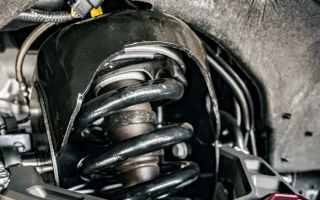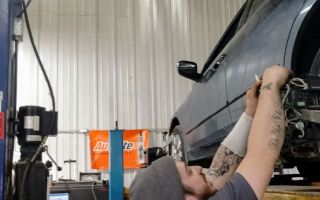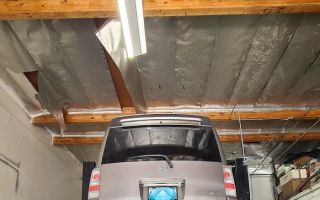Understanding and Solving Engine Overheating Problems
1. What Causes Engine Overheating?
Overheating is one of the most common issues car owners face, and I can tell you from personal experience, it’s not something anyone wants to deal with. Engine overheating can happen for various reasons, but it always points to a problem that needs attention. When your engine temperature rises above the normal operating range, it can lead to serious damage if not addressed promptly.
So, what causes this alarming issue? Overheating can occur because of a malfunctioning radiator, coolant leaks, a broken water pump, or even a faulty thermostat. It could also be a result of low coolant levels or a damaged cooling fan. In my case, I once ignored the symptoms of an overheating engine, thinking it was just a minor issue, only to find out the hard way that the damage was more extensive than I had imagined.
2. Recognizing the Symptoms of Engine Overheating
Before you find yourself stranded on the side of the road, it’s essential to recognize the early signs of engine overheating. If you notice any of the following symptoms, it’s time to take immediate action:
- Temperature Gauge Reading High: Most vehicles are equipped with a temperature gauge on the dashboard. If the needle starts climbing into the red zone, your engine is overheating.
- Coolant Warning Light: A flashing or steady coolant warning light on the dashboard indicates that something is wrong with the engine’s cooling system.
- Steam from the Hood: If you see steam rising from under the hood, this is a clear sign that the engine is running too hot.
- Strange Smell: A burning smell could indicate that coolant or oil is leaking onto hot engine components.
These symptoms might seem minor at first, but ignoring them could lead to engine failure. I’ve experienced this firsthand, and trust me, it's better to address these issues early than wait for a bigger problem to develop.
3. Immediate Actions You Can Take When Your Engine Overheats
When you realize that your engine is overheating, the first thing you should do is stay calm and take immediate action to prevent further damage. Here’s what I recommend based on my experience:
- Pull Over Safely: If you’re driving and notice the temperature gauge climbing, pull over to a safe location immediately. Continuing to drive could cause irreparable damage to your engine.
- Turn Off the Engine: Once you’ve pulled over, turn off the engine to allow it to cool down. This helps prevent the engine from sustaining severe damage. I once ignored this step, and the engine damage was much worse than it would’ve been if I had just let it cool.
- Check Coolant Levels: After allowing the engine to cool for at least 20 minutes, check the coolant levels. If it's low, top it off with a mixture of water and coolant.
- Inspect for Leaks: Look for any visible signs of leaks around the radiator, hoses, or under the vehicle. A leak can cause coolant to escape, leading to overheating.
4. How to Prevent Engine Overheating
Prevention is always better than cure. To avoid the frustrating and costly experience of engine overheating, it’s crucial to maintain your car’s cooling system. I’ve learned through the years that regular maintenance can save you from costly repairs down the line. Here are some tips I follow to prevent engine overheating:
- Regularly Check Coolant Levels: Keep an eye on your coolant levels and top it off as necessary. It’s a simple step that can make a huge difference in preventing overheating.
- Inspect the Radiator: The radiator is the heart of the engine’s cooling system. I always make sure to check it for signs of damage, corrosion, or blockages.
- Replace Worn-Out Hoses: Over time, the hoses that carry coolant can deteriorate. It’s essential to replace any cracked or brittle hoses to ensure the cooling system works effectively.
- Flush the Cooling System: Flushing the radiator and cooling system every couple of years helps prevent the build-up of dirt, rust, and other debris that could clog the system.
- Replace the Thermostat: A faulty thermostat can lead to improper engine cooling. I always make sure to replace it if it’s not functioning correctly.
By following these preventive measures, I’ve managed to avoid overheating issues in the past, and it’s been a relief knowing that my car is in good shape for the long haul.
5. What to Do If Engine Overheating Persists
If engine overheating persists despite your best efforts, it’s time to take your vehicle to a professional mechanic. Continuing to drive an overheated car could lead to permanent engine damage. I’ve been in situations where, despite my attempts to fix the issue on my own, I had to call in a professional. A mechanic can help identify issues such as a faulty water pump, a clogged radiator, or a malfunctioning fan. Getting expert help early can save you from more severe engine damage and expensive repairs down the road.
For instance, I once ignored an overheating issue, thinking it was just a fluke. But when it happened again on a road trip, I realized I needed professional help. A mechanic found a faulty radiator fan that needed replacing, and it was much cheaper than replacing the entire engine.
Engine overheating doesn’t have to be a nightmare. By staying proactive and following the right maintenance steps, you can keep your car running smoothly and avoid those dreaded breakdowns. If you ever find yourself in a tough situation and need assistance, don’t hesitate to get in touch with reliable services. Visit Rescue & Towing for the best towing company recommendations and solutions!




























